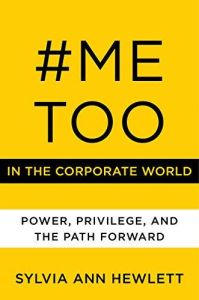Join getAbstract to access the summary!

Join getAbstract to access the summary!
Sylvia Ann Hewlett
#MeToo in the Corporate World
Power, Privilege, and the Path Forward
HarperBusiness, 2020
What's inside?
#MeToo fights harassment of young, white women, but also should include men, LGBTQ+ and people of color.
Recommendation
The #MeToo movement brought a storm of change, but its over-focus on the experiences of young, white women is problematic, argues economist Sylvia Ann Hewlett, given that men, older women, people of color, members of the LGBTQ+ community and others also experience abuse. To provide greater safety and support for all, leaders can make changes to corporate values, culture, and procedures for tracking incidents and responses. Studies verify that diversity boosts a company’s bottom line. Thus, Hewlett says, by committing to “inclusive leadership” organizations help their employees – and themselves.
Summary
About the Author
Economist Sylvia Ann Hewlett is the CEO of Hewlett Consulting Partners, founder of the Center for Talent Innovation and author of 14 books, including Executive Presence and The Sponsor Effect.



















Comment on this summary